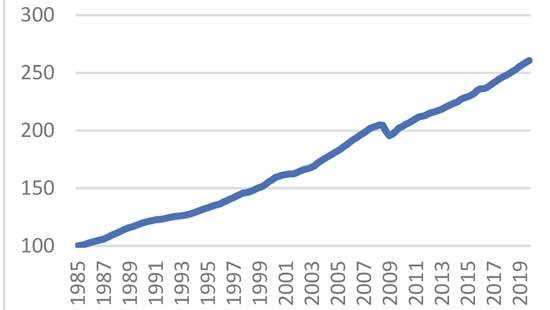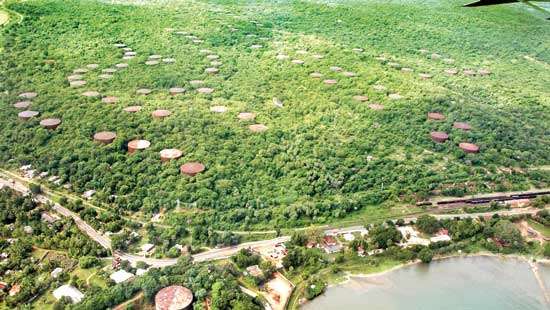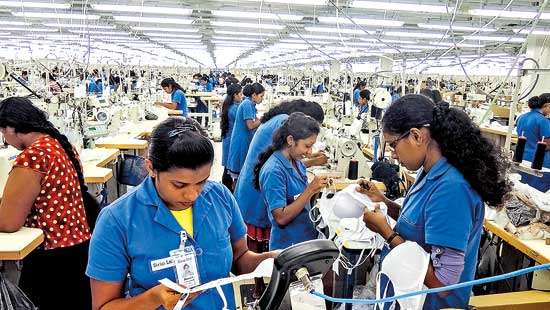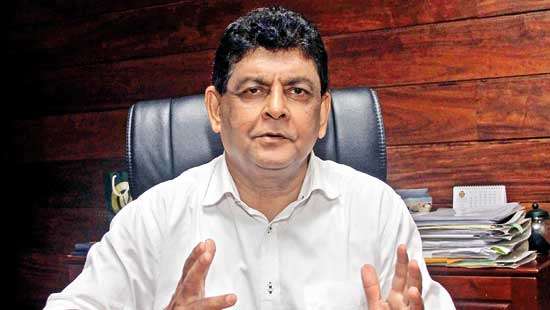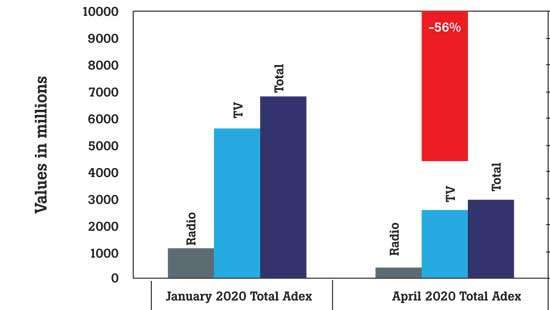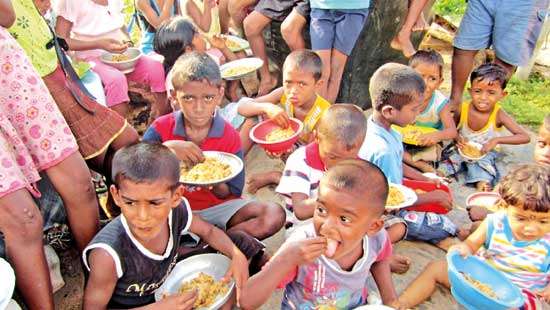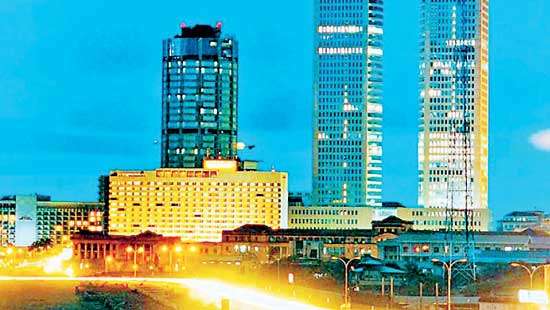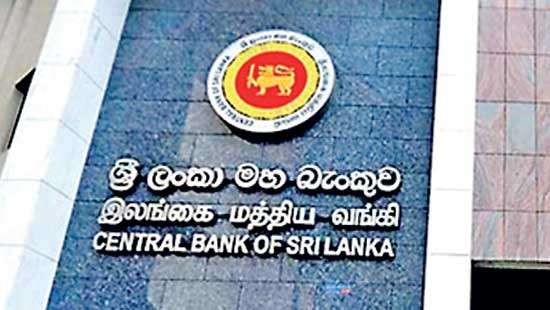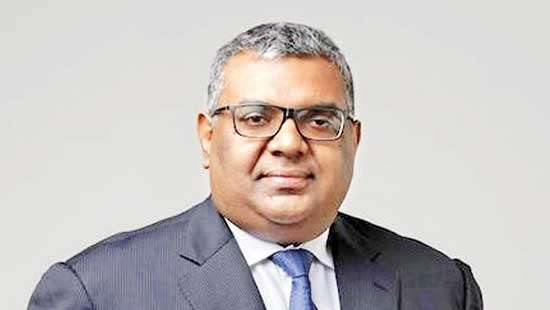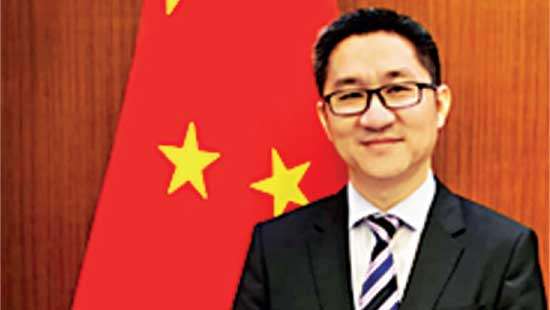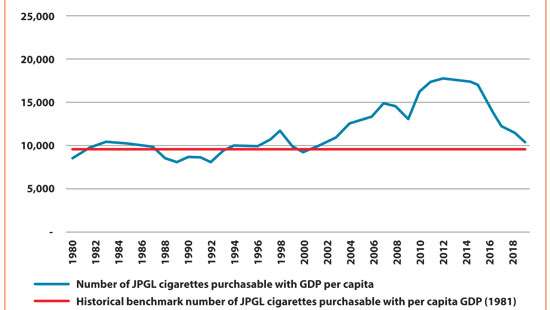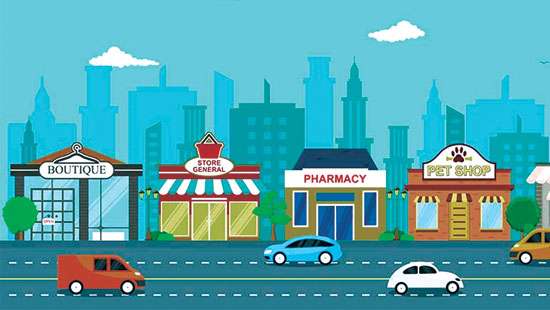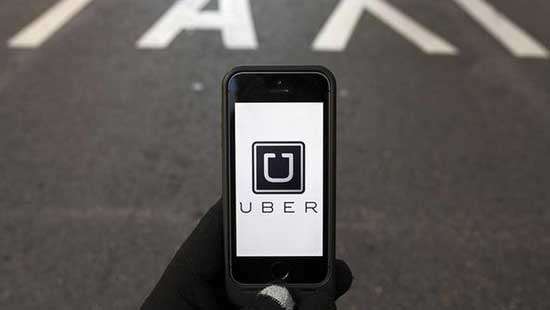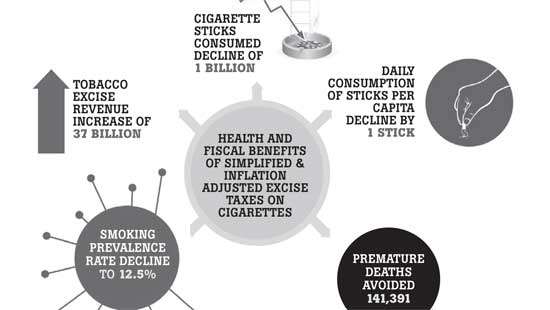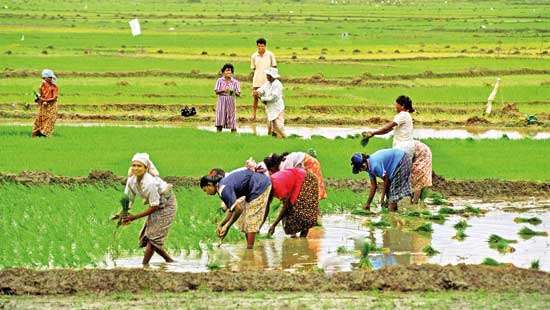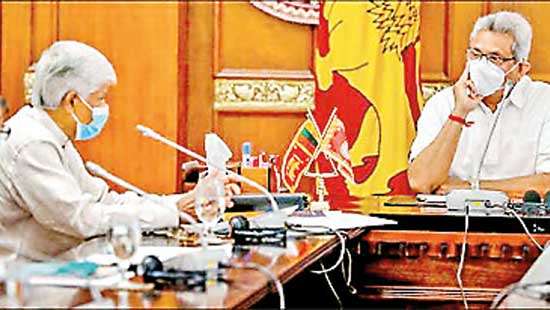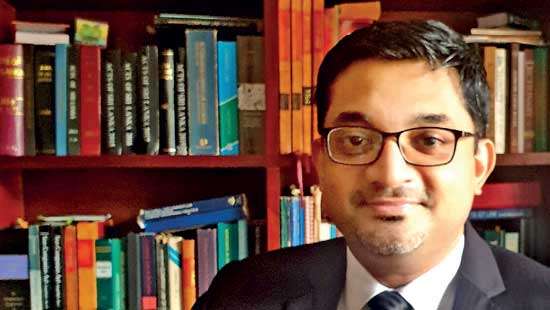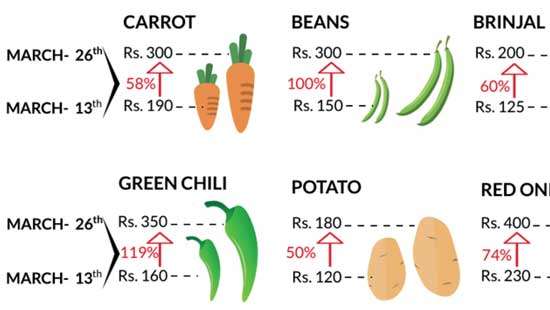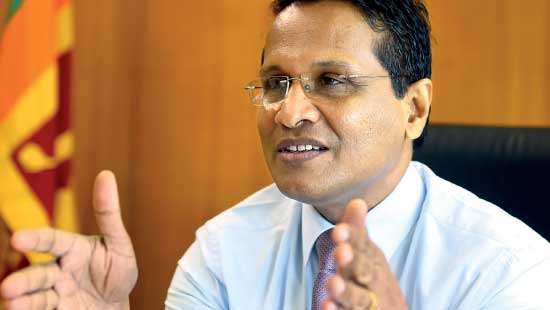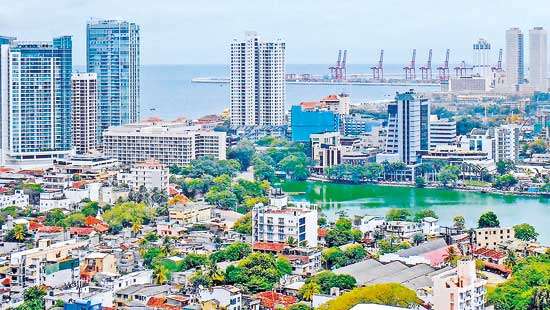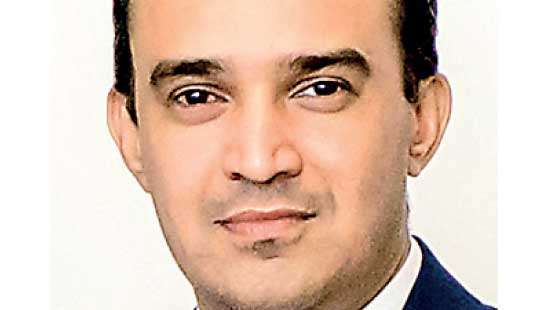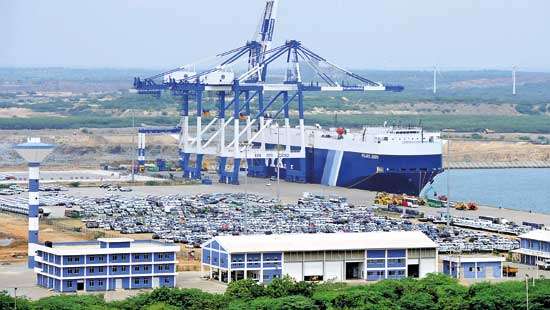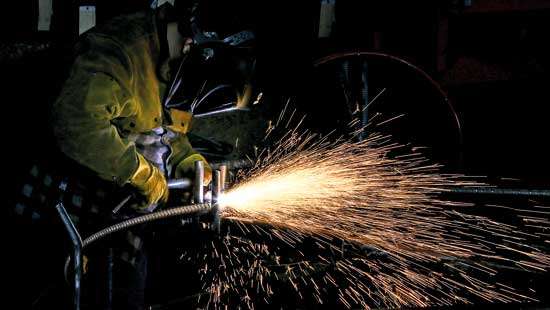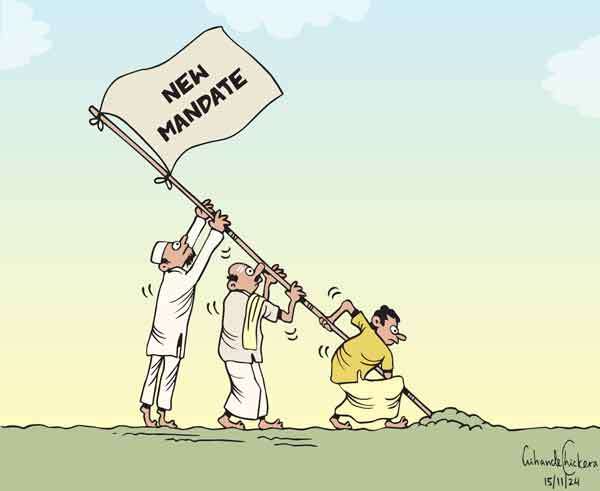Features
Rebooting Sri Lanka post COVID-19
22 Jun 2020
 0
0
The current economic slowdown in South Asia comes against the backdrop of a global public health crisis that has halted economic activities across many economies in the region and beyond. Growth in South Asia is expected to average 2-3 percent in 2020 and then improve to 4-6 percent in 2021.
Corona squeeze of Sri Lankan economy: A sectoral outlook
17 Jun 2020
 0
0
Given the stark choice between saving lives with no certainty vs saving livelihoods with some certainty, Sri Lanka, like some other countries, opted for the former and acted early. Would this wreak havoc in the Sri Lankan economy?
Low oil prices and Sri Lanka’s lost opportunities
15 Jun 2020
 0
0
Lockdowns across the world have caused trade and travel to grind to a halt. The demand for oil has plunged and the prices have crashed; futures for West Texas Intermediate, a grade of oil, briefly turned negative, touching a low of minus US $ 40.32.
Post-COVID trade order: Only the fast and the nimble will survive
15 Jun 2020
 0
0
Now that Sri Lanka has achieved a notable success in containing the danger posed by the COVID-19 pandemic to the health of the nation, the time has come for a concerted and decisive focus on reviving the economy. This is particularly timely, now that the economy has been removed from its ‘induced coma’, with the elimination of daytime curfew throughout the island.
Covid-19 impact on Sri Lanka’s advertising industry
11 Jun 2020
 0
0
Advertising is the meaningful connecting bridge of brands and consumers! Building familiarity, awareness, increase sales and brand building are some of the key responsibilities of advertising. Even in an era when the media landscape is getting fragmented with fast innovation of digital media touch points, traditional media still becomes the choice of many brand owners as well as advertisers.
Shavendra addresses Ceylon Chamber committee on managing COVID-19
11 Jun 2020
 0
0
Lieutenant General Shavendra Silva, Chief of Defense Staff, Commander of the Sri Lanka Army, and Head of the National Operational Center for Prevention of COVID -19 addressed the monthly committee meeting of the Ceylon Chamber of Commerce on ‘The successful Management of COVID-19 pandemic in Sri Lanka and the way forward,’ recently.
No school, no meals: Sri Lanka’s battle against child malnutrition amidst COVID-19
10 Jun 2020
 0
0
Although Sri Lanka performs well in most health indicators, child nutrition remains a major issue. According to the Demographic and Health Survey (DHS) 2016, in Sri Lanka, more than 20 percent of children under five years, are underweight.
E-commerce in Sri Lanka – A legal overview
09 Jun 2020
 0
0
The COVID-19-related lockdowns and the continuing need to follow social distancing rules even once the lockdowns are lifted, mean that we will not be going back anytime soon to what it was like in the pre-pandemic days. For businesses, this means an urgent re-evaluation and overhaul of business models to meet the many challenges inherent in the post-COVID-19 economic environment, including a seismic shift in consumer behaviour.
Sri Lanka’s response to COVID-19 has been noteworthy and needs to stay on course
08 Jun 2020
 0
0
Sri Lanka has reported 1730 cases of COVID-19 as of June 3. The authorities and the medical staff have responded effectively to the crisis and need to say on course. The effort is being acknowledged in the region as an example. The challenge from now on would be to stay on course and not lose the gains.
Fast-tracking export resilience: Renewed thinking, renewed strategies
03 Jun 2020
 1
1
Exports play an important role in a country’s economy as they influence the level of growth, employment and balance of payments. For Sri Lanka, the focus on exports is now more important than ever, as the island nation looks to bring in foreign currency to boost the economy.
Could COVID-19 lead to a positive disruption in tourism industry?
02 Jun 2020
 0
0
Tourism is probably the worst affected industry from the outbreak of the COVID-19 pandemic. Sri Lanka is yet to feel the economic and social impact of the unprecedented global lockdown and travel restrictions, which are likely to remain until the third quarter of 2020.
There is high expectation for better China-US relations post COVID-19
02 Jun 2020
 0
0
Acting Chinese Ambassador in Sri Lanka Hu Wei in this interview says he is confident of a bright future for China-Sri Lanka relations and says certain western politicians are attempting to make China the scapegoat for their negligence. As of 2019, the US has the largest economy and China the second largest.
Reducing health costs and increasing govt. revenue beyond COVID-19
30 May 2020
 0
0
The susceptibility of smokers to contract COVID-19 has been recognised by the World Health Organisation (WHO) and other medical authorities. In Sri Lanka, concerned parties have called for a temporary ban of cigarette sales as a measure to contain the spread of the virus – a commendable move.
Pathfinder suggests priorities for Sri Lanka’s post-COVID economic recovery
28 May 2020
 0
0
The Pathfinder Foundation (PF) recently presented a report to President Gotabaya Rajapaksa, Prime Minister Mahinda Rajapaksa and Special Envoy of President and Chairman of Task Force on Economic Revival and Poverty Alleviation Basil Rajapaksa, containing a set of action-oriented recommendations from an eminent persons study group, aimed at steering Sri Lanka into a post-COVID-19 era of economic recovery.
Suggested revival plan for Sri Lanka’s economy in post-COVID-19 era
28 May 2020
 0
0
COVID-19 has battered the world with its viral and deadly impact, with millions of people being affected and hundreds of thousands dying. At the same time, the virus and its aftermath has wrecked the economies of almost all countries and is now leaving a devastating trail of bankruptcies, livelihood losses, evaporation of savings, debt defaults, economic and corporate collapses and hopelessness.
Legal dimensions of employer-employee relationship in the new normal
27 May 2020
 1
1
Along with the massive shock, the COVID-19 pandemic has brought in a series of uncertainties, particularly with regards to employment. With strict limitations being enforced on people’s movement by way of a two-month-long curfew to constraint the virus from spreading, the government called on the public and private sector to work from home to keep the ball rolling.
New face of hunger: Building a resilient food system in Sri Lanka in an age of pandemic
27 May 2020
 0
0
COVID-19 is dealing an unprecedented blow to economies around the globe and the health risk is only the tip of the iceberg. Among the many impending crises resulting from the pandemic, rising food insecurity, due to the lockdown measures, is one of the most critical.
Stock market was not closed. It was not possible to open it
22 May 2020
 2
2
In his first interview with the media, the newly appointed Securities and Exchange Commission (SEC) Chairman Viraj Dayaratne PC talks about the unprecedented challenges he and his new Commission Members had to face and the tough decisions they had to make on the country’s already lagging stock market, amid the COVID-19-induced curfews and economic slowdown.
Ceylon Chamber proposes multisectoral approach for post-COVID-19 economic revival
21 May 2020
 0
0
The Ceylon Chamber of Commerce submitted its multi-sectoral proposals to the Task Force for Economic Revival and Poverty Alleviation. This was building on the submission made to the President on a Shared Vision for Post-COVID-19 Economic Recovery.
How SRI LANKA can thrive as an ideal higher education destination
19 May 2020
 0
0
With Sri Lanka being commended for its highly successful measures in containing the novel coronavirus, which led to a global pandemic, whilst many developed nations failed to do so, it’s an ideal moment for the country to be positive and turn this crisis into an opportunity, especially when it comes to higher education.
Sri Lanka’s FDI quandary: Profit repatriations exceed investment inflows!
18 May 2020
 1
1
The recently released 2019 Central Bank annual report reveals that repatriation of profit by foreign-owned firms or foreign direct investment (FDI)-backed firms in Sri Lanka continue to increase. Profit repatriation (or dividend outflows) in 2019 has reached US $ 599 million, compared to the US $ 494 million actual new FDI inflow into the country.
Another COVID-19 challenge: Saving Asia’s crucial infrastructure deals
18 May 2020
 0
0
The economic downturn caused by COVID-19 is the greatest economic calamity since the Great Depression and is disrupting the construction, operation and maintenance of infrastructure services globally. Throughout Asia and the Pacific, this could cause serious delays in the construction of roads, schools, hospitals, ports, airports and other critical pieces of infrastructure financed by public-private partnerships (PPPs).

Fonterra to proceed with sale process for Consumer businesses
18 May 2020
 0
0

BOI signs US$ 12.16mn deal with Celogen Lanka
18 May 2020
 0
0

Nissan to lay off thousands of workers as sales drop
18 May 2020
 0
0

EU Ambassador meets new BOI Chief to discuss economic ties
18 May 2020
 0
0

SLCERT warns WhatsApp users against sharing OTPs to prevent hacking
18 May 2020
 0
0

NPP heading for clear parliamentary majority
18 May 2020
 0
0

Police officer, two election officials die while on duty on election day
18 May 2020
 0
0



